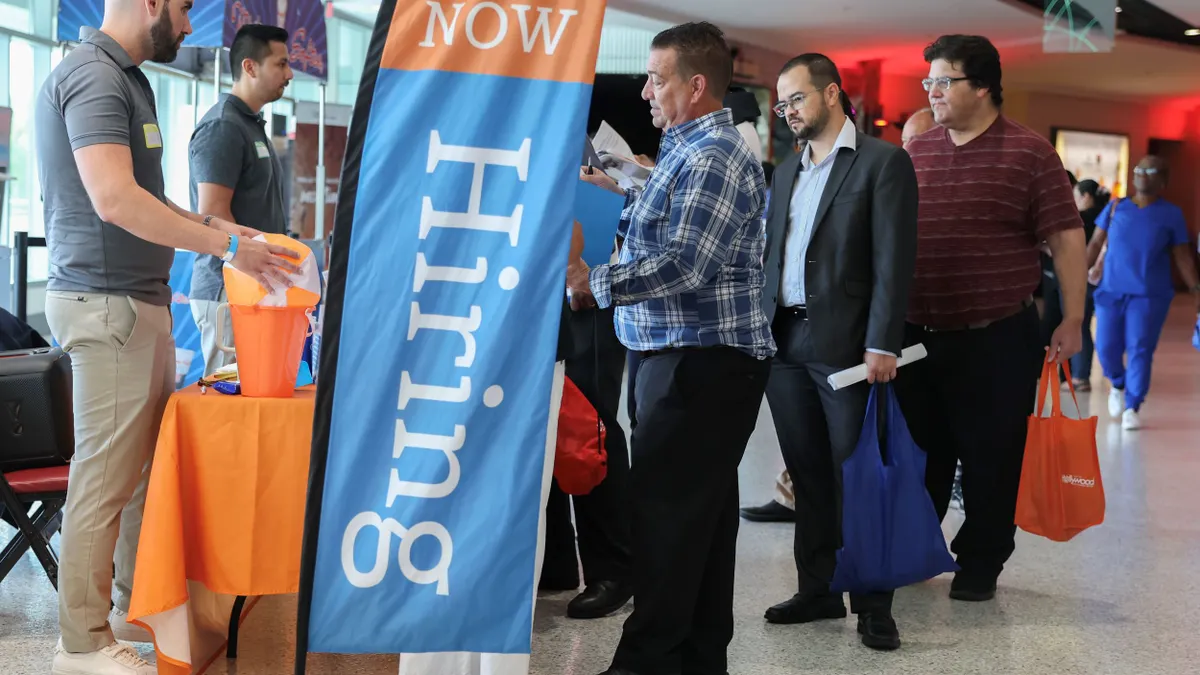In June, 34% of the U.S. labor force said they had engaged in some type of job-seeking activity during the past 90 days, up from 27% in January, according to a July 17 report from CompTIA.
Workers cited a changing financial situation as the top factor for seeking a new job, including concerns around job security and layoffs. Many job seekers said they considered openings in the same field, as well as a career shift to a new field.
“The sheer scale of active job seekers — more than 50 million — means we’re seeing a wide array of experiences, perceptions and motivating factors, sometimes even conflicting ones,” Amy Carrado, senior director of workforce research at CompTIA, said in a statement. “This presents both opportunities and challenges for employers and workers alike.”
In a survey of more than 2,000 U.S. adults, which was evenly split between active job seekers and non-seekers, training and upskilling appealed to workers across the board. Among non-seekers, nearly half said they want to build their skills for career maintenance or career advancement. In addition, 88% of all workers rated digital fluency skills as important for today’s workforce.
At the same time, job seekers are growing tired: Search-related mental fatigue rose to 43%. Generation Z workers also applied to jobs online at a lower rate while increasing their search for information about training and skill-building. This could represent frustration with non-successful applications and a shift to upskilling to improve their chances, CompTIA said.
Beyond mental fatigue, candidates reported challenges such as finding the time to apply, undergoing lengthy hiring processes, being screened out by automated systems and balancing the job search with work and family demands.
Even so, job seekers remained generally optimistic about the labor market and their prospects, even slightly improving since January. This could correlate with an increase in the volume of job listings compared to last year, according to the report.
Although salary remains a top influence for many career decisions, work-life balance and professional development opportunities also play a major role, according to a SHRM report from earlier this month. While workers said they’ve had to sacrifice their time and health to advance in their careers, organizational support can help mitigate those trade-offs, SHRM found.













